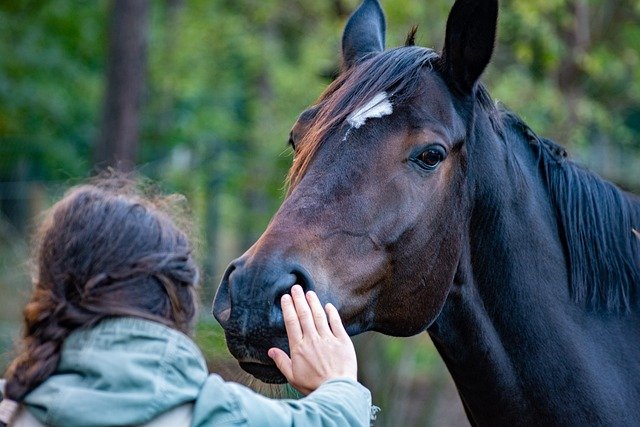Why animals are our best friends
Animals are our best friends. We should take care of them. They help us in many ways.
Animals are needed for our future. They are the gift of nature. They help mankind. Animals have been domesticated and employed for centuries.
Some animals, such as dogs, have been domesticated with a specific function. Other species of wild dogs are also doing activities that benefit humans.
Bats and dragonflies are two other animals that have mosquitoes in their diet. These animals can eat hundreds of disease-carrying insects per night.
Although dragonflies are not as prolific, they can help control mosquito populations, especially during the summer season.
Camels, horses, and yaks carry the load for us. Eagles, vultures keep our environment clean by eating carcasses of other animals.
In the past, fishermen have used cormorants to catch fish on China’s Lijiang River. Although it is less popular now, some birds can still be seen fishing with great skill.
The king snake is a constrictor, but because of its colorful patterned body, it is sometimes mistaken for a venomous species because it is immune to many types of venom, a natural predator of venomous snakes. Kingsnakes make good pets when they are domesticated.
For centuries, people have claimed dogs as their closest and essay on my best friend companions. Of all the pets, dogs serve the widest range of roles: protector, helper, lifeguard and companion.
Dogs are incredible friends for people, and they have been companions for centuries. The relationship between dogs and people is deep and old.
A mutually beneficial relationship
Dogs and people started living together 15,000 years ago when dogs followed the migration of people throughout East Asia. The relationship was natural because both people and dogs are social animals.
Neither can thrive when alone, and both benefit mentally (and often physically) from strong social bonds.
Travel almost anywhere in the world and you’ll see something so ordinary that it doesn’t even grab your attention.
Wherever there are people, there are animals: animals being driven, grazed, fed, watered, bathed, brushed, or hugged. Many, such as dogs, cats, and sheep, are domesticated but you will also find people living alongside wild and exotic creatures such as monkeys, wolves, and the binturong.
Close contact with animals is not limited to a particular culture, geographic region or ethnic group. This is a universal human trait, which suggests that our desire to be with animals is deeply ingrained and very ancient.
On the face of it, it makes very little sense. In the wild, no other mammal adopts individuals of another species; Badgers don’t keep rabbits, deer don’t keep squirrels, lions don’t care for giraffes. And there’s a good reason for this.
Since the ultimate reward in evolution is maintaining your genes in your offspring and their offspring, caring for an individual of another species is counterproductive and detrimental to your success.
Every mouthful you give, hot (or cold) and all the energy you expend to keep safe, is food and energy that doesn’t go to your own relatives.
Pets offer unconditional love
Even though pets offer unconditional love, friendship, physical affection, and enjoyment, that may not explain why or how our bond with other species arose.
Scientists speculate that the friendship developed when those humans started taking wolf pups, which led to them being socialized from infancy. And since wolves instinctively operate in packs with a clear hierarchy, humans readily assumed the role of the alpha wolf, establishing themselves as those to be obeyed.
And there was a payoff when the man and the tame wolf became a dynamic hunting pair. Human skill and understanding, combined with wolves’ speed and sense of smell, turned them into complementary partners, who tracked, captured, and ate their prey for mutual benefit.
humans offered wolves a reliable food source; Tamed wolves provided body heat and served as early warning sentries when in contact with strangers or predators.
The animals that accepted this relationship evolved into more and more obedient companions; many generations later, we had domesticated dogs and their wild gray wolves died out.
how dogs are like wolves
Our domesticated animals still share many traits and instincts with their wild ancestors. Both:
rely on their senses to understand the world
take care of your master’s house
protect your territory
Scrape when left to your own devices
bury the bones if given a chance
How dogs differ from wolves
Despite a close genetic makeup, gray wolves and domestic dogs differ. dogs:
There is more dome on the forehead than a wolf.
have smaller skulls, brains, teeth, and claws than wolves of similar size
Unlike wolves have tails that turn upwards’
Enjoy work ranging from grazing animals to helping the blind.
The study authors stress that these health benefits only apply if the dog is well exercised and cared for. Even though dogs may not offer direct health benefits, the unconditional love and companionship they provide are priceless.
They are by our side when we are sick, sad, and alone. They love us even when we are angry, rude, or outright angry. Dogs are those who understand us on a level that we cannot even fathom.
The truth of human animal connection
The truth is this: We call dogs our best friends because in most senses they are. As dogs and humans have developed a deep connection over thousands of years, dogs have become a part of our families.
We take pride in our dogs, and sometimes show them to others just as we show our children. We play with them, keep them, and trust them for the services they have developed to provide and enjoy.
Often, dogs truly deserve their status as a person’s best friend.
My experience about dogs
In my experience they are both alike, you have awesome and wonderful friends and aggressive and cute animals.
I have two dogs and they are like my best friends, so loyal, loving, and intuitive. When I moved away from home for the second time, I had a six-week-old puppy, big brown eyes, a soft tan coat, and was very clumsy.
We shared a touching moment in 2006 when I went swimming in the river, I was in the deepest section and the current was strong. With a slight hesitation and stamping on his paws, he jumped into the river and swam after me because he thought I was in danger.
He had never swum in water like that before he was six weeks old and was ready to dive after me to make sure I was okay.
I have seen many great encounters with people of similar nature as well as the negative side of the equation where dogs have chased and bit me and people have frustrated or humiliated me.
In short, there are too many variables in this question to be able to accurately answer this question. My advice would be, get a dog, find some friends who are just as loving and caring and you have the best of both worlds.





More Stories